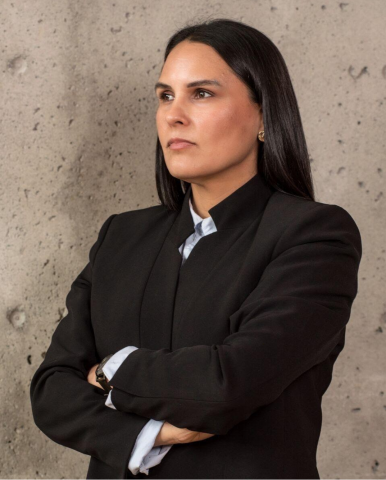Originally published in CBC National, April 13, 2021.
The Global Risks Report, released by the World Economic Forum earlier this year, cites the top challenges facing us today – a daunting list. Damage to the environment from climate change and our failure to act on it is the main danger, while the COVID-19 pandemic that has killed more than two million people worldwide has highlighted the risk of infectious diseases. The pandemic has also increased societal risks such as poverty, and threatens economies.
We cannot react to these global problems with complacency, by simply throwing money at them, or with top-down or siloed solutions. We need bold community-based, sustainable and comprehensive approaches with far-reaching results. And we need them now.
We can harness social innovation and social finance as a solution to these very real global risks.
Social innovation and social finance provide an economic “triple play” — mobilizing investment and creating jobs, while also addressing social inequities and environmental degradation.
Social innovation simply means working together to develop outside-the-box solutions to collective problems in support of social progress. It requires collaboration among community leaders, non-profits, charities, cooperatives, government, and the private sector. Social innovation is that café down the street that employs at-risk youth to give them a better start in life, or a small-town housing co-op for seniors that allows them to age in place.
Social finance is a tool that enables social innovation. It is an approach to investing that provides measurable social and environmental benefits, mobilizing both private and philanthropic capital for the public good through social finance intermediaries.
Some provinces, for example, provide a generous tax credit to individuals who invest in Community Economic Development Investment Funds (CEDIFs). These CEDIFs in turn invest the money in local businesses and organizations, providing jobs and services to the local community. Like traditional investments, CEDIFs pay a return on investment while supporting the community and growing the local economy.
Many countries around the world are embracing social finance. Portugal, Japan, the United Kingdom and the European Union have established social finance funds, and social procurement initiatives have been successfully tested by Scotland, France, Finland and Australia.
Likewise, the United Nations’ Sustainable Development Goals are a call to action to promote prosperity while protecting people and the planet, and corporations are increasingly putting an emphasis on environmental, social and governance (ESG) practices, as well as socially responsible investing.
Here in Canada, social innovation and social finance have already proven their value in helping to solve problems. The national Table of Impact Investment Practitioners and Québec’s CAP Finance represent dozens of funds across the country with more than $1 billion in assets and a record of investing in improving seniors care, ensuring food security, increasing access to affordable housing, and supporting women entrepreneurs.
Social financing can generate enormous spinoff benefits. In 2006, for example, the federal government provided $22.8 million in seed funding to the Fiducie du Chantier de l’économie sociale in Québec, which offers financial products to support the capitalization of social economy enterprises. This leveraged an additional $30 million to launch the fund, and over the next decade 212 investments were made, creating or maintaining 3,183 jobs and mobilizing an additional $374 million.
The impacts of COVID-19 have highlighted gaps in our social systems and have spurred innovative ideas about ways to build a better economy. The federal government has an opportunity to step up and enable these ideas to flourish through social innovation and social financing initiatives.
It has already taken initial steps in this direction, now the government needs to deliver on its promises.
A landmark report was authored before the pandemic by the Social Innovation and Social Finance Co-Creation Steering Group – an advisory group of leaders from the philanthropic, financial, and research sectors as well as the community, which was responsible for helping to develop a social innovation and social finance strategy with the Government of Canada. The report offers critical recommendations, among them a call for the creation of a social finance fund that would help meet the financing needs of organizations that work on positive social outcomes.
Just after the report was released, Ottawa announced it would launch a Social Finance Fund with a $755 million in funding over 10 years, and a $50 million Investment Readiness Program. However, the Social Finance Fund has yet to be rolled out and, after a successful two-year pilot, the Investment Readiness Program is set to expire this month.
If implemented, the Social Finance Fund would accelerate the development of opportunities across the country, resulting in improved access to capital for local organizations working to address social or environmental challenges. It would also increase opportunities for investors to support the local economy.
The federal government’s last full budget, in 2019, made promises about the Social Finance Fund that need to be kept. The upcoming budget on April 19 provides an opportunity to once again prioritize social innovation and social finance in the face of an unprecedented need. Key actions that need to be undertaken through the next budget include:
- Implementing the Social Finance Fund to boost COVID-19 economic recovery;
- Expanding the Investment Readiness Program into an ongoing program to help organizations access social finance funds;
- Properly resourcing all 12 recommendations of the Social Innovation and Social Finance Co-Creation Steering Group.
As we look for solutions to our most pressing existential crises – such as climate change and global pandemics, and the social, environmental and economic havoc they wreak – social innovation and social finance should be in our toolkit.
An investment in social innovation and social finance is an investment in the future of all Canadians.
 Victor Beausoleil is the founder and CEO of Social Economy Through Social Inclusion (SETSI) and president of the Canadian Community Economic Development Network (CCEDNet).
Victor Beausoleil is the founder and CEO of Social Economy Through Social Inclusion (SETSI) and president of the Canadian Community Economic Development Network (CCEDNet).
Marie J. Bouchard is a professor at the École des sciences de la gestion at the Université du Québec à Montréal, and member of the Centre de recherce sur les innovations sociales (CRISES).
Carol Hanne Hilton is the founder and CEO of the Indigenomics Institute and was a member of the Federal Advisory Council on Economic Growth.
*The opinions expressed in blog posts are those of the author(s) and do not necessarily reflect the position of CCEDNet
 Yesterday’s federal budget contained two financial commitments for advancing the federal Social Innovation and Social Finance Strategy, which provide a foundation for moving forward on this file.
Yesterday’s federal budget contained two financial commitments for advancing the federal Social Innovation and Social Finance Strategy, which provide a foundation for moving forward on this file.

 Victor Beausoleil is the founder and CEO of
Victor Beausoleil is the founder and CEO of 

 Andre Beaudry is the executive director of
Andre Beaudry is the executive director of 
 The
The 



 Rosalind Lockyer is founder and CEO of
Rosalind Lockyer is founder and CEO of  The Stronger Together Award celebrates individual and organizational members who have made exceptional contributions to Community Economic Development and/or who have provided outstanding leadership to CCEDNet in achieving our vision of sustainable, equitable and inclusive communities directing their own futures.
The Stronger Together Award celebrates individual and organizational members who have made exceptional contributions to Community Economic Development and/or who have provided outstanding leadership to CCEDNet in achieving our vision of sustainable, equitable and inclusive communities directing their own futures.
 Buy Social Canada has announced the winners of the 2021 Social Procurement Champion Awards.
Buy Social Canada has announced the winners of the 2021 Social Procurement Champion Awards.  City of Calgary for the Benefit Driven Procurement Policy
City of Calgary for the Benefit Driven Procurement Policy Construction Social Enterprises EMBERS, BUILD, Building Up, and Impact Construction
Construction Social Enterprises EMBERS, BUILD, Building Up, and Impact Construction LeBreton Flats Community Benefit Coalition
LeBreton Flats Community Benefit Coalition
 Lauren Eddy is a musician, singer- songwriter, and sound technician from Bonavista, Newfoundland and Labrador. She now resides in St. John’s. Lauren’s current musical focus is her pop-rock group, Saint Scarlett. The group released their debut 6 song EP in January 2020. The project was nominated for two MusicNL awards in 2021. Lauren is also First Light’s new full-time Arts Technician. She also does a variety of freelance sound technician work for local businesses, music venues, and community events. Lauren graduated from the College of the North Atlantic with a diploma in Sound Recording & Production and diploma in Music Performance, Business, & Technology. Lauren has a passion for music, art, and community. In her free time she enjoys hiking and gardening.
Lauren Eddy is a musician, singer- songwriter, and sound technician from Bonavista, Newfoundland and Labrador. She now resides in St. John’s. Lauren’s current musical focus is her pop-rock group, Saint Scarlett. The group released their debut 6 song EP in January 2020. The project was nominated for two MusicNL awards in 2021. Lauren is also First Light’s new full-time Arts Technician. She also does a variety of freelance sound technician work for local businesses, music venues, and community events. Lauren graduated from the College of the North Atlantic with a diploma in Sound Recording & Production and diploma in Music Performance, Business, & Technology. Lauren has a passion for music, art, and community. In her free time she enjoys hiking and gardening.  The Canadian CED Network’s
The Canadian CED Network’s